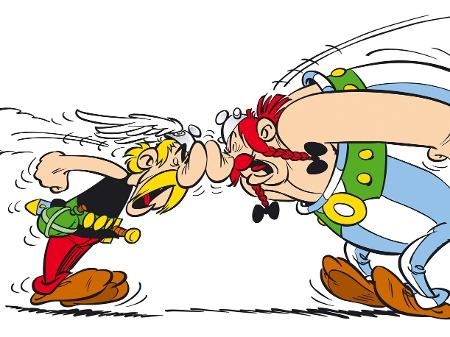- Joined
- Jan 17, 2010
- Messages
- 4,522
- Reaction score
- 5,483
BY NICHOLAS RICCARDI
Updated 2:05 PM BRT, February 28, 2024
Representative democracy remains a favorite system of governance around the globe, but its appeal is slipping on the eve of elections in much of the world, according to a survey of 24 democratic countries by the Pew Research Center released Wednesday.
While a median of 77% across the 24 surveyed countries said representative democracy was a “good” system of government, higher than any other alternative, a median of 59% told pollsters they were dissatisfied with how democracy was working in their own country. In the 22 countries where data was available from 2017, the last time Pew asked about democracy, the share describing democracy as a “very good” system was down in half of them.
“People do like representative democracy. But you see here in lots of different ways people are really frustrated with how it’s performing,” said Richard Wike, managing director of Pew’s Global Attitudes research. “There’s a real disconnect between people and their representatives.”
Across the 24 countries — all democracies — a median of 74% said they don’t believe elected officials care what people like them think. Only 10 of the 24 national leaders on the survey had favorable ratings from half or more of the public.

But the alternatives were seen as even worse. Only six opposition leaders got favorable reviews, and a median of 42% of respondents said no political party in their country represented their viewpoint. People in the political center were more likely to report not feeling like a party represents their views.
The poll comes as the world’s democracies prepare for a titanic year, with elections scheduled in more than 50 nations that represent half the world’s population. That includes Indian elections this spring, European Union-wide elections in June and the November presidential election in the United States.
The voting comes as support for more authoritarian forms of government are on the rise. The Pew survey found that in eight of the surveyed countries, support for a “strong leader” who can make decisions without court or legislative interference increased since 2017.

Those countries included Brazil, Germany, Mexico, Kenya and Argentina, where Javier Milei, a self-described “anarcho-capitalist” whose supporters call him “the madman,” won that country’s presidential election in November, after the Pew survey work was completed earlier last year. Overall, just under one-third typically backed some sort of authoritarian system across the surveyed countries.
Support for a strong leader also rose in India, which stood out as the country with the highest level of support for that form of government, with 67% of those surveyed ranking it as a good system, an increase of 12 % from when Pew asked the question in 2017.
India’s popular prime minister, Narendra Modi, has been criticized for eroding that country’s democratic and secular traditions with his Hindu nationalist party. But the country’s residents also reported a high level of satisfaction with democracy in the poll, and Wike said the two factors are intertwined in India.
“These authoritarian models have more support there,” Wike said. “That gives authorities some foundation of public support they can draw on.”
The poll found support for a strong leader increased the most in Mexico, where it jumped 23% since 2017. At the same time, Mexico was one of three countries where support for democracy increased — Brazil and Poland were the other two.
Support for more authoritarian leadership tended to be strongest among those with lower levels of education and income, as well as those on the ideological right. Poorer countries registered higher support for autocratic systems, including military rule. Having the military in control of governing also was backed by about a third of all residents in eight of what Pew called more “middle-income” countries, such as Mexico, India, Indonesia and South Africa. Overall, though, military rule is the least popular form of government, with a median of just 15% supporting it.

The U.S. is an outlier in multiple categories, including its support for more autocratic systems.
It was the wealthiest country surveyed, and while its support for autocratic systems was well below majority level — only 15% back military rule and 26% back a strong leader system — they were higher than half the other countries in the poll.
That comes as former President Donald Trump, the leading candidate for the Republican Party’s presidential nomination, has continued to speak warmly about authoritarian leaders, such as China’s Xi Jinping, North Korea’s Kim Jong Un and Russia’s Vladimir Putin.
Wike said the U.S. also stands out for its polarization over questions of whether more diverse representation would improve the country’s policies. A median of 50% across the surveyed countries believe policies would improve if more women were elected, while in the U.S. that share was only 42%.
Across the surveyed countries, a median of 46% believed electing more younger adults to office would improve policies, while in the U.S. that share was 38%, the second-lowest recorded after Japan. The U.S. also registered the largest ideological gap on the question, with 7 in 10 liberals saying younger leaders would improve conditions and only 2 in 10 conservatives agreeing.
While representative democracy was the most popular system, direct democracy, in which citizens themselves vote on major issues, was close behind, with a median of 70% saying it would be a good way to run their country. Pew also found an increase in support for a system run by experts rather than elected officials, with a median of 58% backing that model.
Pew surveyed 30,861 people in 24 countries between February and May 2023. The margin of error varied by country.

https://apnews.com/article/global-d...cs-autocracy-bad95f3d53d0bb2c8d244f344654d1c7
Updated 2:05 PM BRT, February 28, 2024
Representative democracy remains a favorite system of governance around the globe, but its appeal is slipping on the eve of elections in much of the world, according to a survey of 24 democratic countries by the Pew Research Center released Wednesday.
While a median of 77% across the 24 surveyed countries said representative democracy was a “good” system of government, higher than any other alternative, a median of 59% told pollsters they were dissatisfied with how democracy was working in their own country. In the 22 countries where data was available from 2017, the last time Pew asked about democracy, the share describing democracy as a “very good” system was down in half of them.
“People do like representative democracy. But you see here in lots of different ways people are really frustrated with how it’s performing,” said Richard Wike, managing director of Pew’s Global Attitudes research. “There’s a real disconnect between people and their representatives.”
Across the 24 countries — all democracies — a median of 74% said they don’t believe elected officials care what people like them think. Only 10 of the 24 national leaders on the survey had favorable ratings from half or more of the public.

But the alternatives were seen as even worse. Only six opposition leaders got favorable reviews, and a median of 42% of respondents said no political party in their country represented their viewpoint. People in the political center were more likely to report not feeling like a party represents their views.
The poll comes as the world’s democracies prepare for a titanic year, with elections scheduled in more than 50 nations that represent half the world’s population. That includes Indian elections this spring, European Union-wide elections in June and the November presidential election in the United States.
The voting comes as support for more authoritarian forms of government are on the rise. The Pew survey found that in eight of the surveyed countries, support for a “strong leader” who can make decisions without court or legislative interference increased since 2017.
Those countries included Brazil, Germany, Mexico, Kenya and Argentina, where Javier Milei, a self-described “anarcho-capitalist” whose supporters call him “the madman,” won that country’s presidential election in November, after the Pew survey work was completed earlier last year. Overall, just under one-third typically backed some sort of authoritarian system across the surveyed countries.
Support for a strong leader also rose in India, which stood out as the country with the highest level of support for that form of government, with 67% of those surveyed ranking it as a good system, an increase of 12 % from when Pew asked the question in 2017.
India’s popular prime minister, Narendra Modi, has been criticized for eroding that country’s democratic and secular traditions with his Hindu nationalist party. But the country’s residents also reported a high level of satisfaction with democracy in the poll, and Wike said the two factors are intertwined in India.
“These authoritarian models have more support there,” Wike said. “That gives authorities some foundation of public support they can draw on.”
The poll found support for a strong leader increased the most in Mexico, where it jumped 23% since 2017. At the same time, Mexico was one of three countries where support for democracy increased — Brazil and Poland were the other two.
Support for more authoritarian leadership tended to be strongest among those with lower levels of education and income, as well as those on the ideological right. Poorer countries registered higher support for autocratic systems, including military rule. Having the military in control of governing also was backed by about a third of all residents in eight of what Pew called more “middle-income” countries, such as Mexico, India, Indonesia and South Africa. Overall, though, military rule is the least popular form of government, with a median of just 15% supporting it.

The U.S. is an outlier in multiple categories, including its support for more autocratic systems.
It was the wealthiest country surveyed, and while its support for autocratic systems was well below majority level — only 15% back military rule and 26% back a strong leader system — they were higher than half the other countries in the poll.
That comes as former President Donald Trump, the leading candidate for the Republican Party’s presidential nomination, has continued to speak warmly about authoritarian leaders, such as China’s Xi Jinping, North Korea’s Kim Jong Un and Russia’s Vladimir Putin.
Wike said the U.S. also stands out for its polarization over questions of whether more diverse representation would improve the country’s policies. A median of 50% across the surveyed countries believe policies would improve if more women were elected, while in the U.S. that share was only 42%.
Across the surveyed countries, a median of 46% believed electing more younger adults to office would improve policies, while in the U.S. that share was 38%, the second-lowest recorded after Japan. The U.S. also registered the largest ideological gap on the question, with 7 in 10 liberals saying younger leaders would improve conditions and only 2 in 10 conservatives agreeing.
While representative democracy was the most popular system, direct democracy, in which citizens themselves vote on major issues, was close behind, with a median of 70% saying it would be a good way to run their country. Pew also found an increase in support for a system run by experts rather than elected officials, with a median of 58% backing that model.
Pew surveyed 30,861 people in 24 countries between February and May 2023. The margin of error varied by country.

https://apnews.com/article/global-d...cs-autocracy-bad95f3d53d0bb2c8d244f344654d1c7

